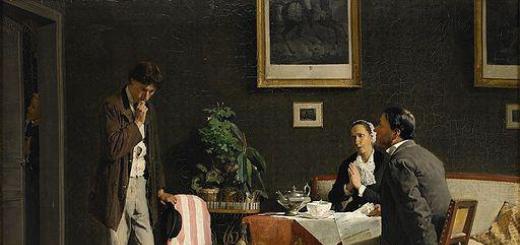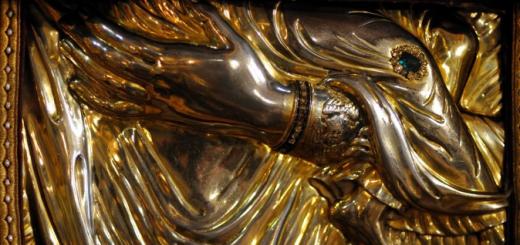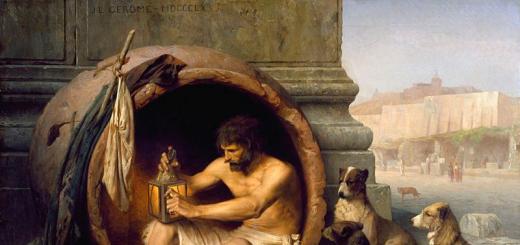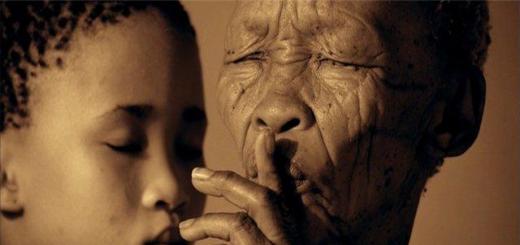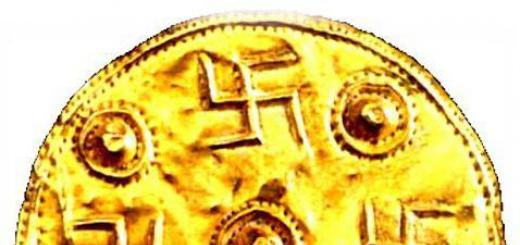Pyotr Yakovlevich Chaadaev
In 1836, the first letter from P.Ya. Chaadaeva. This publication ended in a big scandal. The publication of the first letter, according to A. Herzen, gave the impression of "a shot that rang out on a dark night." Emperor Nicholas I, after reading the article, expressed his opinion: "... I find that the content thereof is a mixture of impudent nonsense, worthy of a lunatic." The result of the publication: the journal was closed, the publisher N. Nadezhdin was exiled to Ust-Sysolsk (modern Syktyvkar), and then to Vologda. Chaadaev was officially declared insane.
What do we know about Chaadaev?
Of course, first of all, we recall the poem addressed to him by A.S. Pushkin, which everyone learns at school:
Love, hope, quiet glory
The deceit did not live long for us,
Gone are the funs of youth
Like a dream, like a morning mist;
But desire still burns in us,
Under the yoke of fatal power
With an impatient soul
Fatherland heed the invocation.
We wait with longing hope
Minutes of liberty of the saint,
As a young lover waits
Minutes of true goodbye.
While we burn with freedom
As long as hearts are alive for honor,
My friend, we will devote to the fatherland
Souls wonderful impulses!
Comrade, believe: she will rise,
Star of captivating happiness
Russia will wake up from sleep
And on the ruins of autocracy
Write our names!
The commentary to this poem is usually the words that Chaadaev is Pushkin's oldest friend, whom he met in his lyceum years (in 1816). Perhaps that's all.
Meanwhile, 3 poems by Pushkin are dedicated to Chaadaev, his features are embodied in the image of Onegin.
Pushkin wrote about the personality of Chaadaev in the poem “To the Portrait of Chaadaev” as follows:
He is by the will of heaven
Born in the fetters of the royal service;
He would be Brutus in Rome, Pericles in Athens,
And here he is a hussar officer.
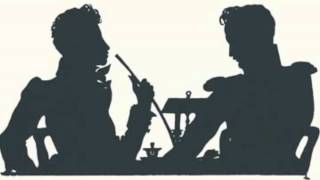
Pushkin and Chaadaev
In 1820, Pushkin's southern exile began, and their constant communication was interrupted. But correspondence and meetings continued throughout life. On October 19, 1836, Pushkin wrote a famous letter to Chaadaev, in which he argued with the views on the destiny of Russia, expressed by Chaadaev in the first “ philosophical writing».
From the biography of P.Ya. Chaadaeva (1794-1856)
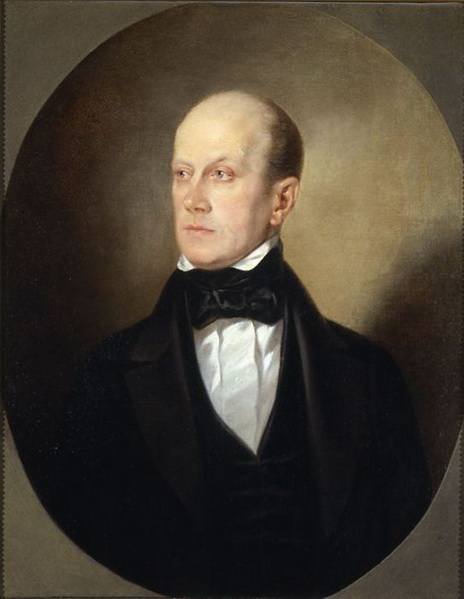
Portrait of P.Ya. Chaadaeva
Pyotr Yakovlevich Chaadaev - Russian philosopher and publicist, in his writings sharply criticized the reality of Russian life. In the Russian Empire, his works were banned for publication.
Born into an old noble family. On the maternal side, he is the grandson of the historian M. M. Shcherbatov, the author of the 7-volume edition of Russian History from Ancient Times.
P.Ya. Chaadaev was orphaned early, his aunt, Princess Anna Mikhailovna Shcherbatova, raised him and his brother, and Prince D. M. Shcherbatov became his guardian, in his house Chaadaev received an excellent education.
Young Chaadaev listened to lectures at Moscow University, and among his friends were A. S. Griboyedov, future Decembrists N. I. Turgenev, I. D. Yakushkin.
He participated in the war of 1812 (including the Battle of Borodino, went to the bayonet attack at Kulm, was awarded the Russian Order of St. Anne and the Prussian Kulm Cross) and subsequent hostilities. Serving then in the Life Hussar Regiment, he became close friends with the young Pushkin, who was then studying at the Tsarskoye Selo Lyceum.
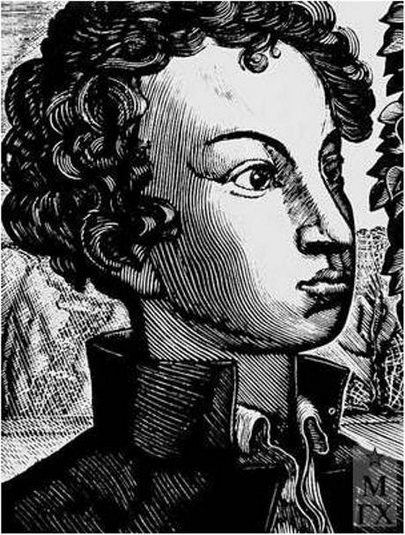
V. Favorsky "Pushkin Lyceum student"
He greatly contributed to the development of Pushkin, and later to the rescue of the poet from exile in Siberia that threatened him or imprisonment in the Solovetsky Monastery. Chaadaev was then adjutant to the commander of the guards corps, Prince Vasilchikov, and managed to get a meeting with Karamzin in order to convince him to stand up for Pushkin. Pushkin paid Chaadaev warm friendship and greatly appreciated his opinion: it was to him that Pushkin sent the first copy of Boris Godunov and was looking forward to a review of his work.
In 1821, unexpectedly for everyone, Chaadaev abandoned a brilliant military and court career, retired and joined the secret society of the Decembrists. But even here he did not find satisfaction for his spiritual needs. Experiencing a spiritual crisis, in 1823 he went on a trip to Europe. In Germany, Chaadaev met the philosopher F. Schelling, assimilated the ideas of Western theologians, philosophers, scientists and writers, got acquainted with the social and cultural structure of Western countries: England, France, Germany, Switzerland, Italy.
Returning to Russia in 1826, he lived as a hermit in Moscow for several years, comprehending and experiencing what he had seen over the years of wandering, and then began to lead an active social life, appearing in secular salons and speaking out on topical issues of history and modernity. Contemporaries noted his enlightened mind, artistic sense and noble heart - all this earned him unquestioned authority.
Chaadaev chose a peculiar way of disseminating his ideas - he expressed them in private letters. Then these ideas became public knowledge, they were discussed as journalism. In 1836, he published his first "Philosophical Letter" in the Teleskop magazine, addressed to E. Panova, whom he calls Madame.
In total, he wrote 8 "Philosophical Letters" in French. , the last of these was in 1831. In his Letters, Chaadaev outlined his philosophical and historical views on the fate of Russia. It was this view of his that was not recognized by the ruling circles and part of contemporary public opinion, the public outcry was enormous. “After Woe from Wit, there was not a single literary work that would have made such a strong impression,” A. Herzen believed.
Some even declared that they were ready, with arms in hand, to stand up for Russia, insulted by Chaadaev.
He considered a feature of the historical fate of Russia “a dull and gloomy existence, devoid of strength and energy, which did not enliven anything except atrocities, did not soften anything except slavery. No captivating memories, no graceful images in the memory of the people, no powerful teachings in its tradition ... We live in one present, in its closest limits, without past and future, among dead stagnation.
The appearance of the first “Philosophical Letter” became the reason for the division of thinking and writing people into Westerners and Slavophiles. Disputes between them do not stop today. Chaadaev, of course, was a staunch Westernizer.
Minister of Public Education Uvarov submitted a report to Nicholas I, after which the emperor officially declared Chaadaev crazy. He was doomed to a hermitage in his house on Basmannaya Street, where he was visited by a doctor who reported monthly on his condition to the tsar.
In 1836-1837. Chaadaev wrote the article “Apology of a Madman”, in which he decided to explain the features of his patriotism, his views on the high destiny of Russia: “I have not learned to love my homeland with my eyes closed, with my head bowed, with my lips locked. I find that a man can only be useful to his country if he sees it clearly; I think that the time of blind love has passed, that now we are primarily indebted to our homeland for the truth ... I have a deep conviction that we are called to solve most of the problems of the social order, to complete most of the ideas that arose in old societies, to answer the most important questions, which occupy humanity."
Chaadaev died in Moscow in 1856.
"Philosophical Letters"
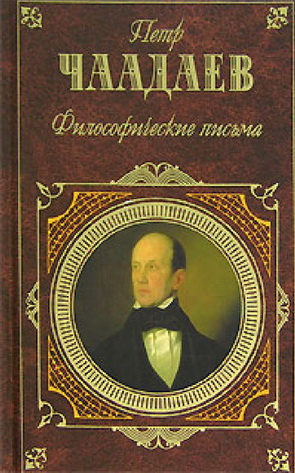
Philosophical Letters" by P. Chaadaev
First letter
Chaadaev was worried about the fate of Russia, he was looking for ways to guide the country to a better future. To do this, he identified three priority areas:
“First of all, a serious classical education;
the emancipation of our slaves, which is a necessary condition for all further progress;
an awakening of the religious feeling, so that religion might emerge from the sort of lethargy in which it now finds itself.
Chaadaev’s first and most famous letter is imbued with a deeply skeptical mood towards Russia: “One of the most regrettable features of our peculiar civilization is that we are still discovering truths that have become commonplace in other countries and among peoples much more backward than we are. The fact is that we have never walked with other peoples, we do not belong to any of the known families of the human race, neither to the West nor to the East, and we have no traditions of either. We stand, as it were, outside of time; the universal upbringing of the human race has not spread to us.
“What other nations have long entered into life,” he writes further, “for us is still only speculation, theory ... Look around you. Everything seems to be on the move. We all seem to be strangers. No one has a sphere of a definite existence, there are no good customs for anything, not only rules, there is not even a family center; there is nothing that would bind, that would awaken our sympathy, disposition; there is nothing permanent, indispensable: everything passes, flows, leaving no trace either in appearance or in yourself. We seem to be at home, we are like strangers in families, we seem to roam in cities, and even more than the tribes wandering through our steppes, because these tribes are more attached to their deserts than we are to our cities.
Chaadaev describes the history of the country as follows: “First, wild barbarism, then gross superstition, then foreign domination, cruel and humiliating, the spirit of which the national authorities subsequently inherited - this is the sad story of our youth. The pores of overflowing activity, the ebullient play of the moral forces of the people - we had nothing like it.<…>Take a look around all the centuries we have lived, all the spaces we have occupied, and you will not find a single riveting memory, not a single venerable monument that would speak authoritatively about the past and draw it vividly and picturesquely. We live only in the most limited present without past and without future, among flat stagnation.
“What other peoples have is just a habit, an instinct, then we have to hammer it into our heads with a blow of a hammer. Our memories do not go beyond yesterday; we are, as it were, strangers to ourselves.”
“Meanwhile, stretching between the two great divisions of the world, between East and West, leaning with one elbow on China, the other on Germany, we should have combined in ourselves the two great principles of spiritual nature - imagination and reason, and unite history in our civilization the entire globe. This role was not given to us by providence. On the contrary, it did not seem to concern our fate at all. Denying us its beneficial effect on the human mind, it left us completely to ourselves, did not want to interfere in anything in our affairs, did not want to teach us anything. The experience of time does not exist for us. Centuries and generations have passed fruitlessly for us. Looking at us, we can say that in relation to us, the universal law of mankind has been reduced to nothing. Lonely in the world, we gave nothing to the world, took nothing from the world, we did not contribute a single thought to the mass of human ideas, we did not contribute in any way to the forward movement of the human mind, and we distorted everything that we got from this movement. . From the very first moments of our social existence, nothing useful for the common good of people has come out of us, not a single useful thought has germinated on the barren soil of our homeland, not a single great truth has been advanced from our midst; we did not take the trouble to create anything in the realm of the imagination, and from what was created by the imagination of others, we borrowed only deceptive appearance and useless luxury.
But Chaadaev sees the meaning of Russia in the fact that "we lived and now still live in order to teach some great lesson to distant descendants."
Second letter
In the second letter, Chaadaev expresses the idea that the progress of mankind is directed by the hand of Providence and moves through the chosen peoples and chosen people; the source of eternal light has never been extinguished among human societies; man walked along the path determined for him only in the light of the truths revealed to him by higher reason. He criticizes Orthodoxy for the fact that, unlike Western Christianity (Catholicism), it did not contribute to the liberation of the lower strata of the population from slave dependence, but, on the contrary, consolidated serfdom in the times of Godunov and Shuisky. He also criticizes monastic asceticism for its indifference to the blessings of life: “There is something truly cynical in this indifference to the blessings of life, which some of us take credit for. One of the main reasons that slows down our progress is the lack of any reflection of the elegant in our home life.
Third letter
In the third letter, Chaadaev develops the same thoughts, illustrating them with his views on Moses, Aristotle, Marcus Aurelius, Epicurus, Homer, etc. He reflects on the relationship between faith and reason. On the one hand, faith without reason is a dreamy whim of the imagination, but reason without faith also cannot exist, because “there is no other reason than the mind of the subordinate. And this submission consists in serving the good and progress, which consists in the implementation of the “moral law”.
fourth letter
The image of God in man, in his opinion, is contained in freedom.
Fifth letter
In this letter, Chaadaev contrasts consciousness and matter, believing that they have not only individual, but also world forms. So "world consciousness" is nothing but the world of ideas that live in the memory of mankind.
sixth letter
In it, Chaadaev sets out his "philosophy of history." He believed that the history of mankind should include the names of such figures as Moses and David. The first "showed the people the true God", and the second showed "an image of sublime heroism." Then, in his opinion, comes Epicurus. He calls Aristotle "the angel of darkness." Chaadaev considers the goal of history to be the ascent to the Kingdom of God. He calls the Reformation "an unfortunate event" that divided the united Christian Europe.
seventh letter
In this letter, Chaadaev recognizes the merit of Islam and Muhammad in the eradication of polytheism and the consolidation of Europe.
Eighth letter
The purpose and meaning of history is the “great apocalyptic synthesis”, when a “moral law” is established on earth within the framework of a single planetary society.
Conclusion

Reflections...
In the "Apology of a Madman" Chaadaev agrees to recognize some of his former opinions as exaggerated, but caustically laughs at the society that fell upon him for the first philosophical letter out of "love for the fatherland."
So, in the face of Chaadaev, we see a patriot who loves his homeland, but puts love of truth higher. He contrasts the patriotism of the “Samoyed” (the common name for the indigenous peoples of Russia: the Nenets, Enets, Nganasans, Selkups and the already disappeared Sayan Samoyeds, who speak (or spoke) the languages of the Samoyed group, which together with the languages of the Finno-Ugric group form the Ural language family) to his yurt and the patriotism of an "English citizen". Love for the motherland often nourishes national hatred and "clothes the earth in mourning." Chaadaev recognizes progress and European civilization as true, and also calls for getting rid of "remnants of the past."
Chaadaev highly appreciates the activity of Peter the Great in introducing Russia to Europe and sees in this the highest meaning of patriotism. According to Chaadaev, Russia underestimates the beneficial influence that the West has had on it. All Slavophilism and patriotism are almost abusive words for him.
